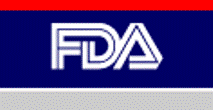Charges like these against a proposal of the US Food and Drug Administration (FDA) have propelled many Paul Revere rides through the alternative and integrative medicine community. One wonders with blasts against the FDA if it is "wolf" that is being cried.

Best assessment: not this time. I received an urgent email from long-time Integrator adviser Michael Levin of Health Business Strategies. Levin's executive roles over the past 4 decades have included positions with pharma companies, medical device firms, as well as supplements firms. He's a level headed analyst. He pointed to a perspective of the Council for Responsible Nutrition:
"Collectively the draft FDA Guidance can be viewed as a variety of maneuvers by the FDA to re-characterize as many dietary supplements as possible as [New Dietary Ingredients] and then propose a standard of proof for their safety that few manufacturers would be able to meet; one that Congress and the courts clearly did not intend to be applied to dietary supplements."
Urge the FDA to add a 120 day extension to the comment period
At issue is Docket Number FDA-2011-D-0376: "Dietary Supplements: New Dietary Ingredient Notifications and Related Issues: Guidance for Industry." The present comment period ends October 11. Levin urges all organizations with a stake in the industry to make their voices heard.
The first step: request a 120 day extension to allow a regulation of this importance to be thoroughly vetted. A draft letter of request is affixed below.

CRN wasn't acting alone. It signed a joint statement with the American Herbal Products Association (AHPA), the Consumer Healthcare Products Association (CHPA), the Natural Products Association (NPA), and the United Natural Products Alliance (UNPA). The group of organizations called for "an overhaul" of the guidance. Best estimates are that compliance will cost the industry $2-billion to $6-billion a year. These costs that will be passed through to patients and consumers.
Levin is realistic about the challenges the guidance poses for anyone not intimately involved with manufacturing and sourcing processes. He warns that "this highly technical regulatory guidance document is very complex." One example: if the guidance were adopted, a manufacturing change will trigger new dietary ingredient (NDI) status which, due to routine manufacturing processes, "essentially will put most botanical extracts into NDI territory." If so, this would add substantially to regulatory burden, and cost.
For these reasons Levin, pictured below, "encourage(s) all practitioner-stakeholders to request a 120 day extension on the comment period (now due on 10/11/16) to allow a careful review." In his view, "medical doctors, pharmacists, naturopathic doctors and other healthcare practitioners should review this guidance and consider how it may impact their ability to prescribe safe nutritional interventions to help their patients."

Levin urges all who are affiliated with professional organizations or institutions linked in any way to supplement use to respond - and also send copies of their letters to US Senators Orrin Hatch (R-UT), Ron Wyden (D-OR), Debbie Stabenow (D-MI), Maria Cantwell (D-WA)
If guaranteeing safety is the FDA's primary concern, attacking the dietary supplement manufacturing is roughly like the IRS seeking to balance the budget by auditing people who make under $50,000 a year. With a significant percent of the estimated 251,000 medical deaths a year linked to pharmaceutical use, maybe a better use of the FDA's team on this project would be to set them to mining in a deeper vein of public harm than to making more expensive the agents people are using instead of pharmaceuticals.
Bottom line: Levin's call for an extension makes sense. No need for the FDA to rush on this one. Get your request for an extension and comments in!
Sample Letter Requesting a 120 Day Extension
Docket Number FDA-2011-D-0376 - Request for 120 Day Extension for Comment Period ("Dietary Supplements: New Dietary Ingredient Notifications and Related Issues: Guidance for Industry")
The revised draft guidance for New Dietary Ingredients (NDIs)
Date:
Division of Dockets Management (HFA-305)
Food and Drug Administration
5630 Fishers Lane, Room 1061
Rockville, MD 20852
(Electronic Submission via www.regulations.gov)
Re: Docket Number FDA-2011-D-0376 - Request for 120 Day Extension for Comment Period ("Dietary Supplements: New Dietary Ingredient Notifications and Related Issues: Guidance for Industry")
This is to respectfully request a 120 Day extension for comment period on this draft guidance.
As written, the guidance raises very serious questions about the future availability of safe dietary supplements recommended by healthcare practitioners to help patients maintain and improve their health.
Physicians, doctors and pharmacists use nutrient repletion and targeted nutritional interventions to improve the health status of the patients we serve. In so doing, our patients can live healthier lives. Evidence also exists that these nutritional interventions may reduce healthcare costs, safely.
Since this guidance is highly technical and appears to have a high likelihood of impacting the practice of nutritional medicine, we simply need more time to study, understand and consider how this guidance might impact our ability to help the patients we serve. The issues of manufacturing changes, ODIs vs NDIs, the position on synthetic botanicals, the cost of redundancy of NDINs and how that might impact innovation, product availability, consumer prices and ingredient availability are some of the issues that need careful exploration. Products on formularies will need to be reviewed to determine how this guidance, if adopted, would impact their availability.
Please extend the comment period by (at least) 120 days (to February 11, 2017) so that we may evaluate the impact this important guidance may have on public health and safety, in general, and the patients we serve, in particular.
Thank you.
Sincerely
-- This feed and its contents are the property of The Huffington Post, and use is subject to our terms. It may be used for personal consumption, but may not be distributed on a website.
No comments:
Post a Comment